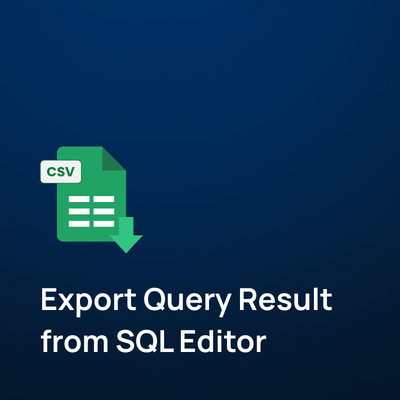How To
May 25, 2023
30 min read
Operationalize AI: How to turn your data into an AI product
Bridge the AI/business gap with Keboola
Artificial intelligence (AI) is propelling us toward a more autonomous future. Just recently, ChatGPT passed another Bar exam and DALL-E 2 won an art competition.
But AI is not just about self-driving cars and hopeful futurism. Some are pessimistic about the techno consequences of the new inventions. For instance, Elon Musk called for a pause in AI R&D due to concerns about its dangers.
As sensationalistic news discusses whether AI will doom humanity or open the gates to a new utopia, companies are left to wonder how to use AI to grow ROI.
At Keboola we’ve been at the forefront of transforming companies with AI products. Not just as observers on the sidelines, but as product builders at the frontlines.
It’s time to share our recipe for success.
In this article, we’ll explore:
- The current state of AI in the business world.
- The challenges and benefits of AI that made it into business.
- How to increase the chances of your AI initiatives succeeding? In other words, the recipe for success.
- How to accelerate your AI operationalization with Keboola - practical advice for teams implementing AI.
The current state of AI in business: Mind the AI/business gap
In 2019, 90% of data science projects never made it into production. But even the AI projects that saw the light of day, failed to deliver business outcomes 85% of the time.
This is often termed the “AI/business gap”, the chasm that divides AI initiatives from business successes.
However, a lot has changed since 2019. Just last year, 36% of enterprises recorded significant ROI growth due to their AI initiatives.
The increased ROI comes from many aspects of AI:
- AI solutions can outperform standard man-made solutions by spotting patterns humans cannot.
- AI products often create new niches for revenue streams. Before image recognition was a field, document scanning was a job description, not an app feature.
- AI can comb through amounts of data that humans would take decades or even centuries to analyze. The scale of analysis combined with the pattern-spotting, helps AI solutions propose innovative insights that get you ahead of the competition. The accuracy of these insights often depends on high-quality data annotation, which ensures that AI models are trained on well-labeled, meaningful data.
With so many benefits, the recipe for AI success is a coveted one.
In our experience working with clients that range from early-stage startups to multi-billion dollar enterprises, there are 6 levers you can push to increase the chances of delivering a successful AI project that delivers business results.
How to increase the chances of your AI initiatives succeeding?
AI initiatives trail the business edges of the unknown.
Unlike the more tried-and-tested business operations such as Sales, Finance, or Legal, the collective business world has not yet productized enough machine learning algorithms to know what will work in advance.
But that doesn’t mean you cannot apply the best practices to increase the chances of turning your R&D projects into successful AI products.
Across multiple niches and company sizes, we discovered these 6 levers help you increase the success of gaining business results from your AI initiatives:
- AI products require data maturity. The old AI adage “Garbage in, garbage out” still holds. Without quality data, you cannot build a superb data product. Companies jump too quickly into building products with AI algorithms at their core, ignoring the hierarchy of data needs. Sweating the quality of your data assets and building a data infrastructure that is well-designed, validated, self-served, and governed helps you move faster once you start building data products. Curious about where your company stands on the data maturity model? Find out where you stand.
- Make room for everyone at the table. AI products are not just for data engineers and data scientists. Domain experts are crucial stakeholders at every stage of the AI product lifecycle. Put processes in place and pick tools that help domain experts ideate, build, and test AI products alongside your technical experts.
- Give your experts time to work on creative tasks. AI initiatives get delayed because of technological overhead: setting up databases, building data integration pipelines, and writing scripts that clean petabytes of data. Successful companies automate DevOps to liberate engineering resources for more creative tasks.
- Use cloud technologies to scale. Artificial intelligence’s success is proportional to the quantity of data you use to train your algorithms. For example, a crucial contributor to the success of ChatGPT 4 versus its predecessor is the order of magnitude larger dataset on which it was trained. Dataset size is not the only reason for a model’s success, but working with petabytes of data can put a strain even on the best data engineering solutions. To tap into the full potential of data for your AI initiative you need an infrastructure that can scale with big data’s velocity, variety, and volume. Without cloud technologies, such a feat would be practically out of reach.
- Move fast, fail fast, and learn fast. It’s hard to anticipate the outcomes of an AI project before it’s finished. To make your chances of success higher, build AI products faster, so you can learn what works and what doesn’t. Build with agility and tools that help you productize your initiatives.
- Put your solution in the right hands. No amount of engineering tests can replace putting the product in the hand of your target users. Turn your data models and tables into self-service products to quickly get that market validation. Even if the market is just your own Sales department testing a lead-scoring AI system for in-house prospecting.
Case study: Rohlik automates DevOps to unleash new AI products
Rohlik is now an e-commerce giant valued at over $1 billion. But it wasn’t always the case.
Their rise to success was (in part) thanks to Keboola. The e-commerce giant used Keboola to automate their 3500 daily data pipelines and liberate their engineer’s time to spend on developing AI products.
Among other, they used Keboola to build:
- Delivery optimizer. A real-time optimization engine that recommends the number of bags to pack for customers’ orders and the best delivery route to maximize returns on delivery trips.
- Stock optimizer. A system for automated order re-purchase given the demand on the market and the stock in the warehouse.
- Upselling system. An AI-based web-shop product recommender that outperforms their previous man-made recommender system by 1% on every order. 1% doesn’t seem a lot, but in a vertical where margins are tight and profits accumulate, this results in a substantive gain at the end of the financial quarter.
- Intelligent pricing. Real-time discounted pricing that changes the item’s prices based on demand, stock, and products’ shelf life.
- Automated insights. By centralizing all their data with Keboola, integrating the cleansed data into BI tools, and building AI segmentation algorithms on top of them, Rohlik gets a daily insights report showing forecasts, trends, and opportunities to grow.
Build AI products faster with Keboola
Keboola is a platform that helps you automate all your processes: from streamlining data operations to launching new AI products.
- Its self-service, fully-governed features simplify data operations, allowing for effortless setup of end-to-end ELTL pipelines.
- Offering both low-code and no-code capabilities, Keboola enables all users, regardless of coding expertise, to build data products.
- The platform can handle extensive data types without compromising your infrastructure and is compatible with major cloud providers.
- You can develop prototypes in Keboola's sandbox without disrupting production pipelines and easily transform these into data apps using Streamlit integration.
Keboola's design targets time-consuming steps in launching AI products, speeding up the path from proof-of-concept to a full product.
But Keboola doesn’t just empower companies building AI products. It also brings its AI-powered features to the table that streamline DataOps.
It offers intelligible error messages with resolution suggestions, automated data governance, and impact analysis for changes in code. These advanced features, some of which are available to private-beta Keboola users, will expedite your AI initiatives.
Curious about what else is coming to the forefront of AI productization?
Secure your spot at the forefront of AI productization: Join us at EmPower Event Series
Keboola is the organizer of EmPower - a series of online events that gather companies building AI products to showcase and share their stories.
Get a sneak peek of what's in store at the upcoming EmPower event:
- Get an in-depth look at how our customers utilize Keboola and discover their expert tips for transforming AI proofs-of-concept into successful products.
- Discover the latest Keboola features dedicated to supporting AI product development.
- Gain exclusive knowledge about the future AI features planned for Keboola's roadmap, putting you ahead of your competitors.
- Participate in hands-on labs to turn theory into practice, where we'll guide you on building your own AI products in just thirty minutes.
Join us at our next EmPower Event to get a behind the scene look at how data and AI products are being built and used today, pushing the frontlines of businesses into a more successful future.

Subscribe to our newsletter
Have our newsletter delivered to your inbox.



.png)


.png)

